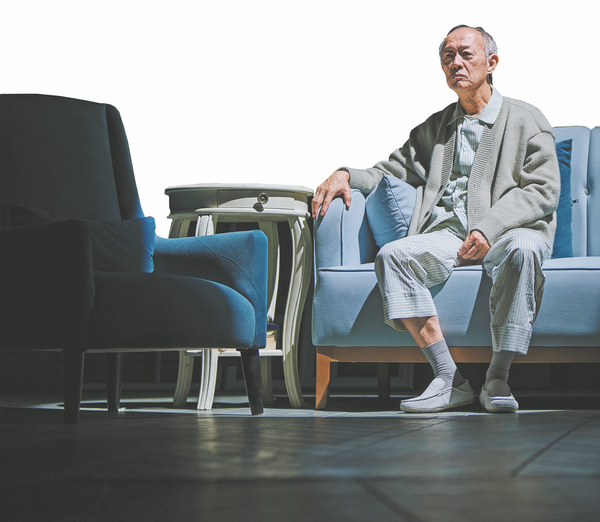

"One moment he seems completely lucid and the next (he) cannot recognize his apartment or his daughter — the man dips in and out of memory and presence," says King, 72. "When I read the script, I was intrigued by the writer's approach of depicting the old man's world, which falls apart due to the disease."
To portray the character, King did research to understand the disease's progression and symptoms. He also consulted medical professionals and individuals with firsthand experience to grasp the emotional and cognitive challenges of Alzheimer's. He uses subtle changes in demeanor, memory lapses, and confusion to convey the character's struggle.
"I developed the habit of reading the script of Le Pere every day after we started doing rehearsals. Even now, after the play has been staged, I have kept up the habit. When I read the script, maybe just a few lines, I have new ideas about the character," says the actor. "Ultimately, the goal is to present a portrayal that is both respectful and authentic, shedding light on the complexities of living with Alzheimer's while evoking empathy and understanding from the audience."
King adds that for the Chinese play, he spent over two months in Shanghai working with the creative team members. "I am very careful about accepting invitation from theatrical productions because unlike movies and TV dramas, performing in theaters means the most connection between an actor and the audience. I have to be fully prepared," says the actor who has performed in movies and TV dramas. In King's decades-long career as an actor, one of his most well-known roles is that of Jiang Binliu, the leading man in the play, Secret Love in Peach Blossom Land, by Taiwan director Stan Lai in 1986.
"Aging is a passage of life that everyone must experience. What happens when someone afflicted with Alzheimer's approaches the end of their life? What changes occur to their body and mind? What difficulties and dilemmas does the family face? We spent a long time discussing the script before we did rehearsals," says director David Weiguo Jiang. "The writer explores these phenomena from the perspective of the patient, chronicling first-person details of symptoms, taking the audience through the entire process in finding resonance in the emotions, pressures and pains of those involved."
The director also designed stage settings to go with the characters' changes, physically and mentally. For example, in the beginning, the apartment where the father lives seems to be normal, comfortable and full of furniture. However, as his health situation declines, the apartment becomes empty, leaving only a bed on stage.
He also mapped out a space on stage for a corridor, where the actors and actresses walk from one end to another. As they pace quickly on the corridor, they become anxious. They cannot find an exit on the corridor just like they cannot figure out a way to solve their problems.
"It's a tragic story but it is also filled with surprise, suspense, fantasy and mind-bogglingly hilarious moments. As we stage it in more cities, I'm delighted to continue sharing the message of this play," the director says.
Contact the writer at chennan@chinadaily.com.cn